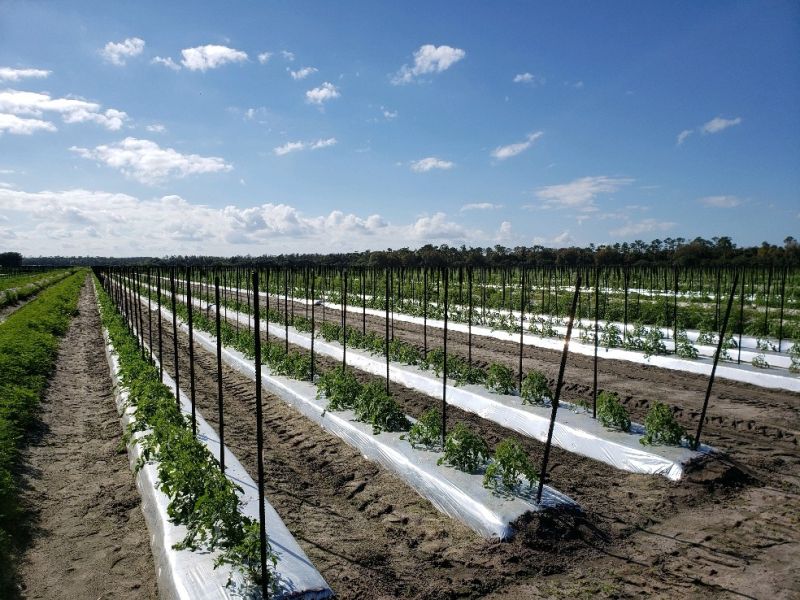By Clint Thompson
The ongoing supply chain crisis forced many Florida tomato producers to consider non-wooden stakes for their plants this year.
Gene McAvoy, University of Florida/IFAS Regional Vegetable Extension Agent IV Emeritus, said growers have said they are more expensive, but they are available.

~ Picture shows large steel stakes for grape tomatoes. ~
“This whole supply chain thing, wooden stakes are coming out of Central America and South America. The freight has increased greatly. The availability has greatly decreased,” McAvoy said. “Growers aren’t getting them. I was talking with a guy at Oaks Farm. He said they cost more, but you can’t get the wooden ones. They need stakes, so that’s how they’re going.”
Tomato farmers use stakes to keep the plants off the ground away from numerous diseases and insects.
McAvoy estimated he saw about 50% of fiberglass stakes while driving around tomato fields in South Florida two weeks ago. One positive is that non-wooden stakes have the potential to last a couple of years longer than the traditional wooden ones. There are other benefits as well.
“I was talking to a supplier in Savannah. He said they’re easier to drive (in the ground) than wood. With wood, you’ve really got to beat on them to get them in the ground. These are more slender, so they go in easier,” McAvoy said. “Labor is reduced. Wood absorbs things. So, if you have certain disease, they’ll get into that wood and can act as a source of inoculum. Fiberglass doesn’t do that. There are some advantages. They say they last five years at least. We won’t know that until we get a little further along.”









